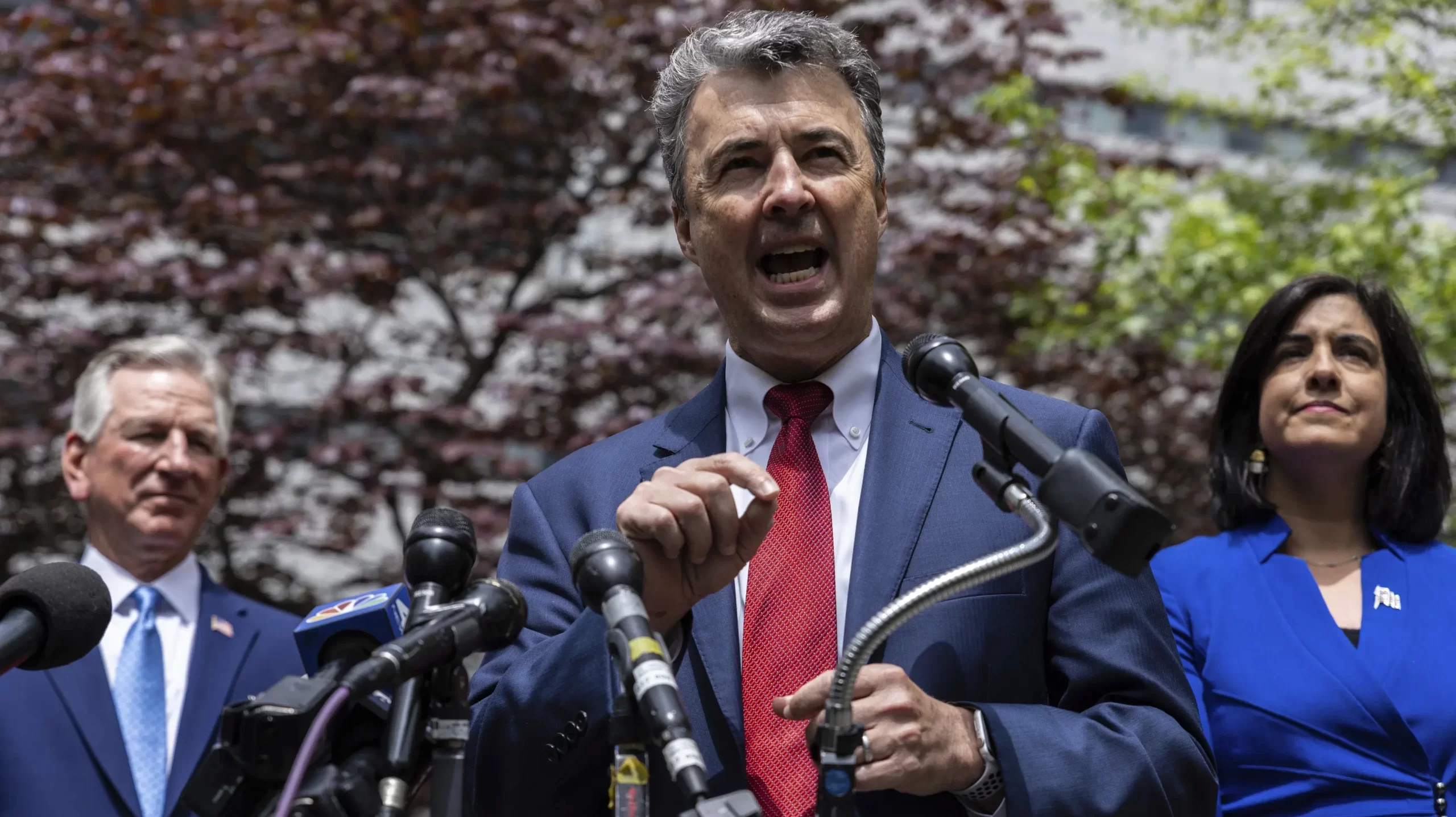|
Getting your Trinity Audio player ready...
|
On Monday, Alabama Attorney General Steve Marshall joined Republican attorneys general from twenty-three other states in filing a brief criticizing a gag order request filed at the end of May by special counsel Jack Smith.
In a press release announcing Marshall’s support of the brief, he stated that “the American people deserve to hear from the presumptive Republican nominee for President of the United States on issues facing our country, including the Biden Administration’s possible misuse of law enforcement to target his political rivals.”
The attorney general also said “Biden’s requested gag order is a desperate and shocking attempt to silence Trump and skew the election.”
Despite Marshall’s claims, there is no evidence yet that the Biden administration played any role in requesting a gag order. Special counsels like Jack Smith are often appointed to avoid any potential bias, and the Department of Justice is historically politically independent from the White House.
Before being appointed as special counsel, Smith was prosecuting Kosovan war crime trials in the Netherlands.
Smith was appointed in 2022 by U.S. Attorney General Merrick Garland to oversee the prosecution of former president Donald Trump both for his involvement with January 6th and his mishandling of classified documents. The request for a gag order that Marshall added his name to a brief against was filed as part of the classified documents case.
The judge in that case, Trump appointee Aileen Cannon, promptly denied the attorneys general’s motion to leave for file in a paperless order, rejecting their brief.
In the rejected brief, the attorneys general made three primary arguments against the proposed gag order. They first criticized the scope of the proposed gag order, calling it “vague and overbroad.”
The request asked for Trump to be prevented from making “statements that pose a significant, imminent, and foreseeable danger to law enforcement agents participating in the investigation and prosecution of this case.” The brief argued that the lack of specificity in this description was “reason enough alone to deny the request.”
Next, the AGs’ brief questioned whether the request met the “heavy burden required for a content-based prior restraint.” Like he has done in other cases, Trump has repeatedly and publicly criticized the FBI, the prosecutors, and other parties for their part in the case. The brief stated that this public criticism should not meet the heavy burden in part because “President Trump is justified in questioning the FBI’s decision to engage in the raid.”
Finally, the AGs argued that approving the gag order would “set an unsettling precedent for future political candidates” and go against the First Amendment.
While Judge Cannon denied the attorneys general’s motion for leave to file their brief, she has yet to rule on Smith’s request for a gag order. As she has ruled in Trump’s favor on several procedural matters previously, many believe she is unlikely to approve the request.
This multistate brief is not the first time that Marshall has criticized the several ongoing prosecutions of former President Donald Trump.
He personally flew to New York and spoke on Trump’s behalf when Trump was affected by a gag order in a New York court. When Trump was found guilty in that case, on 34 felony counts of falsifying business documents, Marshall then claimed that “the outcome was determined before a single piece of evidence was gathered.”
This brief is also not likely to be the last time Marshall defends Trump during the former president’s legal troubles.
Marshall has promised that he and the other attorneys general “will continue to hold the line against this radical political prosecution.”





















































